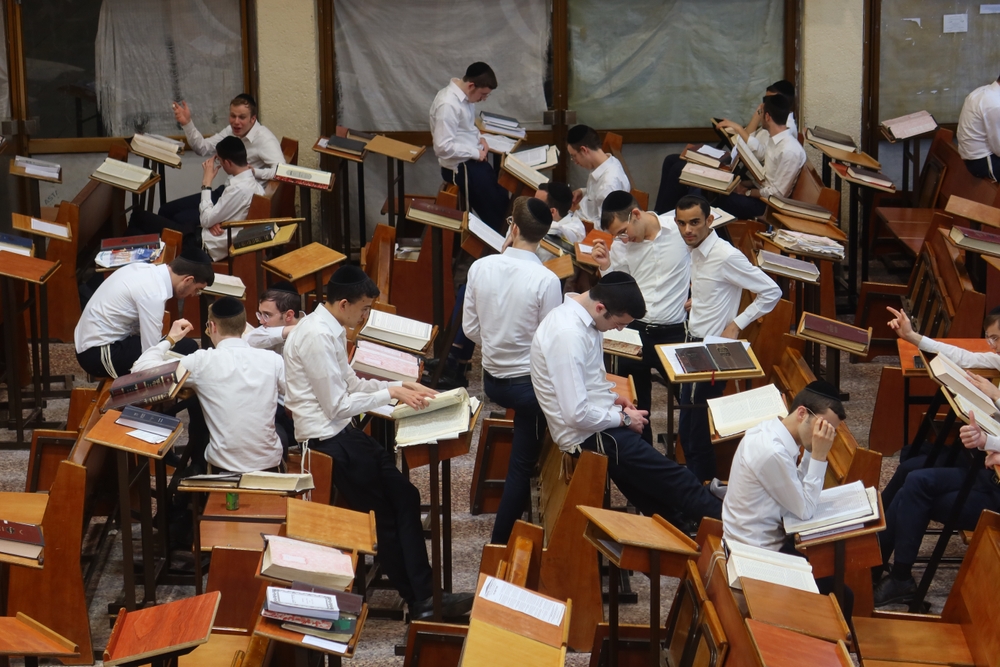Every year Parshat Devarim is read during the somber Nine Days that lead up to Tisha B’Av—could that timing be hinting at a deeper, timeless message of hope in exile?
Our parshah recounts the different journeys of Klal Yisrael (the Jewish Nation) through the barren wasteland, and how Hashem (God) was always with us and we had everything we needed. As the verse states (Devarim 2:7), “For Hashem, your God, has blessed you in all your endeavors; He knew your way in this desert for 40 years—you didn’t lack anything.” For many years the Israelites were forced to wander around a barren wasteland because of the sin of the spies; yet God was with us the entire time, providing us all our needs.
Therefore, specifically in this challenging period, we need to remember that Hashem is always watching out for us, no matter how bleak things look. Our rabbis teach that when we are in exile God is “hiding His Face,” yet He is still intimately involved with every aspect. Even in the darkest times, He is standing at our side. That is why Devarim is usually read at this time (The Kozhnitzer Maggid).
Drawing Close to God
Focusing on Hashem’s kindness specifically during challenging times brings a closeness with Hashem. As the Shlah Hakadosh writes, “Recounting Hashem’s miracles forms a special closeness with Him, and all barriers are removed!” So one mustn’t think that since we are in such a long, dark exile the Shechinah (Divine Presence) is distant from us. Really, the Shechinah is very accessible to all of us. As Chazal (our Sages) teach (Megillah 29a), when we were exiled, the Shechinah went into exile with us, and will return with us at the time of the redemption.
God Holds Our Hand
Even when we are forced into exile, Hashem is right here with us, holding our hand each second, ever so tightly. In the Torah reading of Tisha B’Av—which foretells how Klal Yisrael will sin and be exiled—the verse says, “for Hashem, your God, is a merciful God; He will not abandon you or destroy you (Devarim 4:31).”
Rashi explains that “He will not abandon you” means not removing His hand from ours. Therefore, it is very suitable that we read this on Tisha B’Av, since when we cry, Hashem is—so to speak—crying with us, and it is a great time of closeness. During this challenging time, He shares in our pain.
In fact, Rav Pinchas of Koritz teaches that when we sit on the ground during Tisha B’Av, the Shechinah sits together with us and so to speak joins in our mourning! It is a special time of mercy when we can pray for whatever we are lacking. After all, Hashem continues to yearn for us and for the day we will finally be redeemed (Imrei Pinchas, Tisha B’Av 380).
The Miracle of Our Exile
It is clear that Hashem has been “holding our hand” throughout this long galut (exile). When we think about it, it is truly mind-boggling. Throughout our history, many mighty nations have tried to destroy us—the Greeks, Romans, Babylonians, Germans—the list continues. Yet where are they nowadays? Miraculously, the Jewish nation is still here and thriving! We are fortunate to have many strong Torah communities with flourishing Torah institutions, shuls, and more. The Chovot Halevavot (Shaar Habechinah ch. 5) writes that the fact our nation has survived and thrived among the nations of the world throughout such a long exile is even more miraculous than the Exodus!
Building the Temple with Prayers and Tears
Another important idea to contemplate as we approach Tisha B’Av is that our mourning actually helps rebuild the Temple. As the Chatam Sofer teaches, “The tears we shed over Yerushalayim (Jerusalem) are its building blocks; our tears and mourning are another brick in the Beit Hamikdash!” This helps us understand why many of the brachot (blessings) we recite about the rebuilding of the Beit Hamikdash—such as Boneh Yerushalayim (“Who builds Jerusalem”)—are in the present tense. It is a process happening as we speak, through our mourning. The more we strengthen our yearning and longing for the Beit Hamikdash, the more we hasten the redemption!
The Chazon Ish was once attending a wedding where the band played a stirring tune for Yibaneh Hamikdash for a very long time. Someone asked the Chazon Ish if the music was disturbing him and whether they should ask the musicians to stop. The Chazon Ish replied, “But they are building the Beit Hamikdash!” It was not his manner to be sarcastic; rather, he meant that when people sing Yibaneh Hamikdash, it is a fervent emotional prayer for the rebuilding—and that prayer itself lays another brick!
Parshat Devarim and The Nine Days by Rabbi Daniel Shasha, author of “Living Appreciation”


